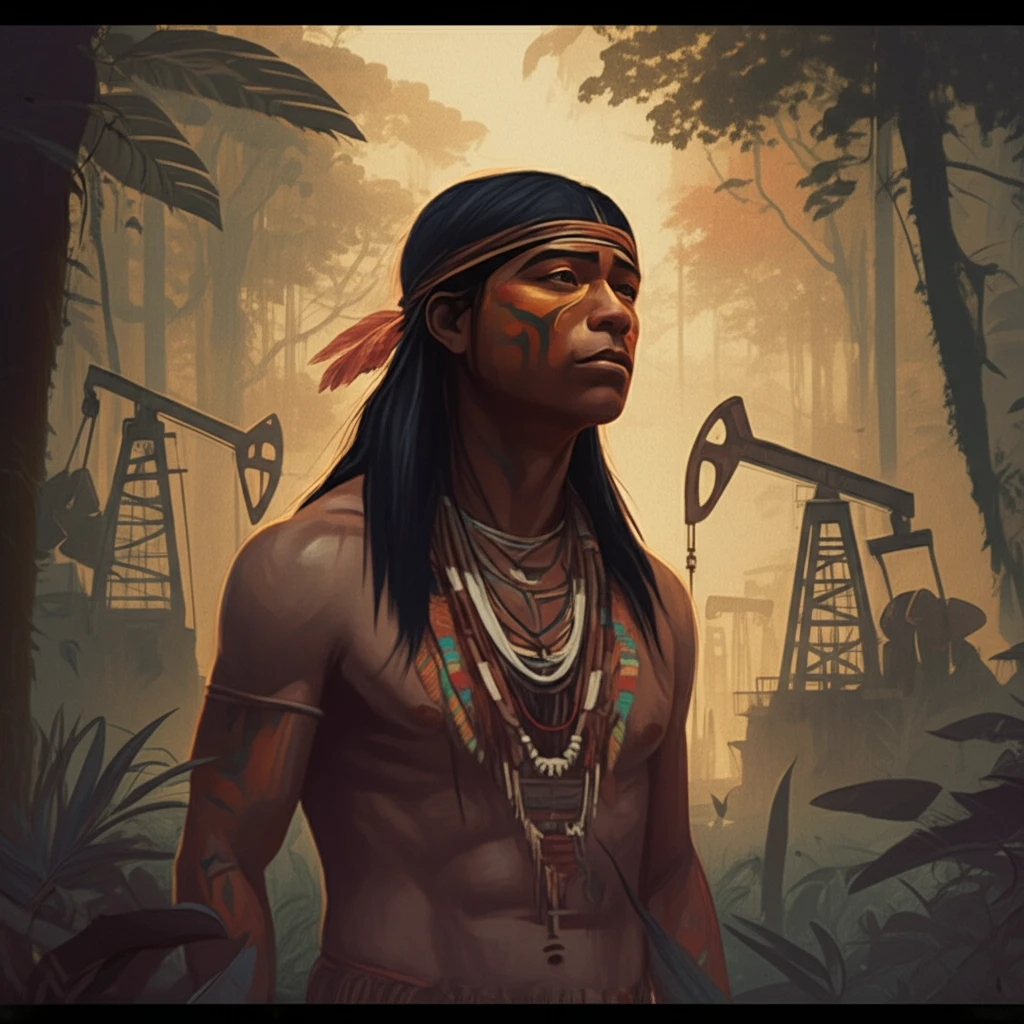
Surviving the Oil: How Indigenous Communities Preserve Culture Amidst Environmental Change
"Discover the resilience of the Cofán people in Ecuador as they navigate the impacts of oil extraction on their ancestral lands."
The Amazon rainforest, a region teeming with life and cultural richness, has long been the site of resource extraction, often at the expense of its Indigenous inhabitants. Among these communities, the Cofán people of Ecuador stand as a testament to resilience and cultural preservation in the face of relentless environmental pressures.
Michael L. Cepek's 'Life in Oil: Cofán Survival in the Petroleum Fields of Amazonia' offers a profound exploration of the Cofán's struggle to maintain their way of life amidst the encroachment of the oil industry. Through vivid storytelling and ethnographic detail, Cepek unveils the complex relationship between the Cofán, their ancestral lands, and the ever-present shadow of resource extraction.
This article delves into the key themes of Cepek's work, examining how the Cofán navigate the socio-ecological challenges brought about by the petroleum industry. We'll explore their cultural adaptations, resistance strategies, and the ongoing efforts to preserve their identity in a rapidly changing world, offering insights relevant to communities facing similar struggles worldwide.
Understanding the Cofán: Culture and Connection to the Land

The Cofán people have a deep, intrinsic connection to their ancestral lands in the Ecuadorian Amazon. Their culture is interwoven with the rainforest, their traditions, livelihoods, and spiritual practices all deeply rooted in the natural environment. This profound relationship forms the bedrock of their identity and resilience.
- Traditional Practices: Hunting, fishing, and gathering are central to Cofán livelihoods, providing both sustenance and cultural continuity.
- Spiritual Beliefs: The rainforest is not merely a resource but a sacred space imbued with spiritual significance, shaping Cofán cosmology and rituals.
- Community Bonds: Strong social structures and communal decision-making processes have historically enabled the Cofán to adapt to environmental changes and external pressures.
The Future of the Cofán: Resilience and Resistance
The story of the Cofán people is far from over. Despite the immense challenges they face, their resilience and determination to preserve their culture offer a beacon of hope. From advocating for Indigenous rights to developing sustainable economic alternatives, the Cofán are actively shaping their future and challenging the narrative of environmental destruction. By amplifying their voices and supporting their efforts, we can contribute to a more just and sustainable future for the Amazon and its Indigenous communities.
